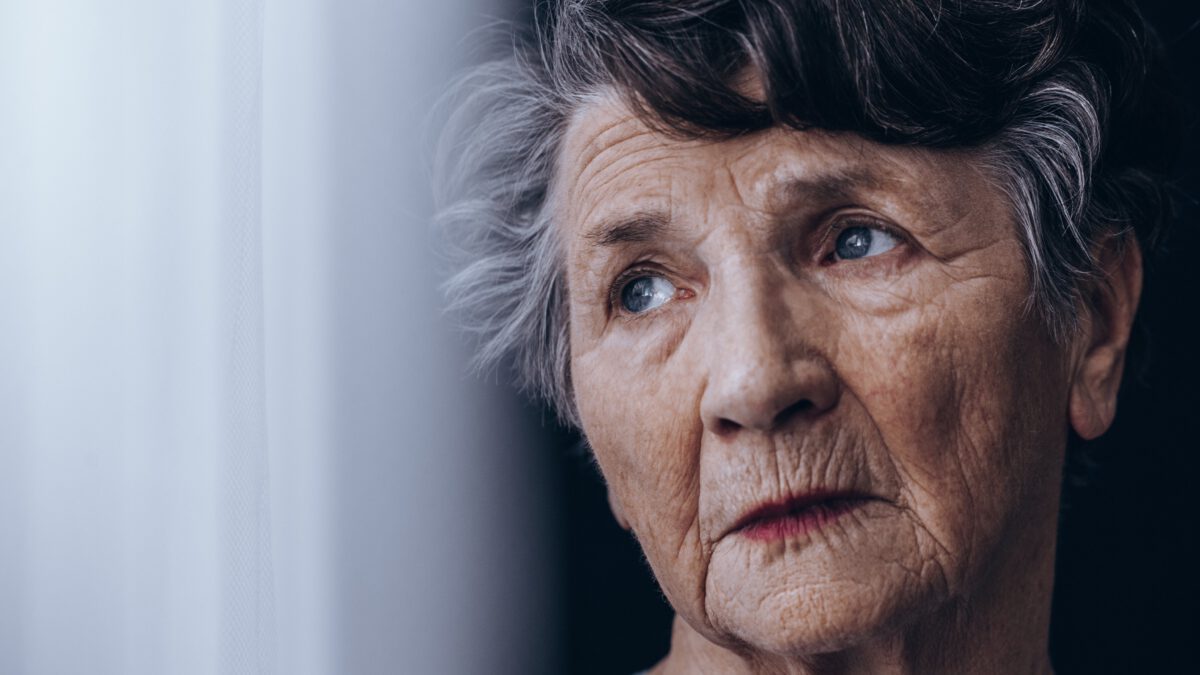Depression vs The Blues and Older Adults
By Kerstin YoderAugust 5, 2020
You may be interested in:

Articles
Holiday Blues and Older Adults
The carols tell us that winter “Tis the season to be jolly,” but this can often be easier said than done. Many people get the holiday blues, and older adults are no exception, especially if they have recently received difficult news or are struggling with their health. The holiday season can often trigger memories of loved ones who have passed away as well. When a loved one is feeling blue, it is more important than ever for us to rally around them, help to contribute a positive atmosphere and find ways for them to create fresh and happy memories.

Articles
Understanding and Diagnosing an Older Loved One’s Dementia- or IDD-Related Depression
Dementia, intellectual and developmental disabilities (IDD) and depression can, unfortunately, be closely linked. An estimated 30 to 40 percent of individuals diagnosed with dementia may also suffer from depression. This number includes older adults in the IDD population who also have dementia—and who are already fifty percent more likely to struggle with mental health conditions, according to the Hogg Foundation for Mental Health.

Articles
The Importance of Immunizations for Older Adults
As we age, the body undergoes numerous changes, many of which impact our immune system. One of the most significant aspects of aging is the gradual weakening of the immune system, a process known as immunosenescence. This decline in immune function increases susceptibility to infections and diseases. Older adults make up about 70 to 85 percent of seasonal flu-related deaths, and are at the highest risk of severe-to-fatal pneumonia than any other age group. Accordingly, while immunizations are important for people of every age, they are of critical importance to older adults.

Articles
Budgeting Tips for Older Adults
We all know how important it is to save money, but sometimes that’s easier said than done. Everywhere we go, there are different demands on our wallet, from weekly grocery trips to exciting new films at the movie theater to self-care treats at the hair salon. Add those expenses to monthly bills, medication costs and gas fill-ups, and it’s no wonder our wallets can end up stretched thin.

Articles
Benefits of Exercise for Older Adults
We’ve all heard it a hundred times: exercise is important! When we hear this, many of us automatically think of the role of exercise in weight management, but do we think about the other benefits of exercising? Centers for Disease Control and Prevention highlight many of these benefits such as reducing symptoms of anxiety and depression; improving our moods; reducing our blood pressure and the risk of falls; and maintaining healthy bones, muscles and joints.

Articles
Taking on Caregiving Responsibilities: Balancing Expectations vs Reality
As your loved one ages, you may find that the demands of caregiving are growing, and it can be too much to handle. Whether you’re helping with small tasks or assisting a loved one with bathing, no caregiving task truly feels all that small, but others can certainly feel too overwhelming. Your expectations may be that you can do it all – caregiving on top of managing your own household, job and other responsibilities. Or, it could be that others’ expectations for care are growing and you feel pressured to live up to it. Whichever the case may be, accepting the situation and learning to work with it may be the first step to making life easier down the road.

Videos
Legal and Financial Planning for Older Adults and Persons with Disabilities
Join us for an informative webinar discussing how older adults and people with disabilities can protect their assets against financial exploitation. Information includes how to properly draft powers of attorney, the use of trusts in legal planning, and the rules and guidelines of Medicaid.

Articles
Suicide Awareness and Prevention in Older Adults
Suicide among older adults is an often overlooked, public health concern. While conversations about mental health have become a lot more common and less stigmatized than in the past, the focus is frequently on younger generations, leaving older adults by themselves in the previous mindset of mental struggles being better left unspoken. Understanding the unique challenges faced by older adults is crucial in addressing this silent crisis and ensuring that those at risk receive the support and care they need.







